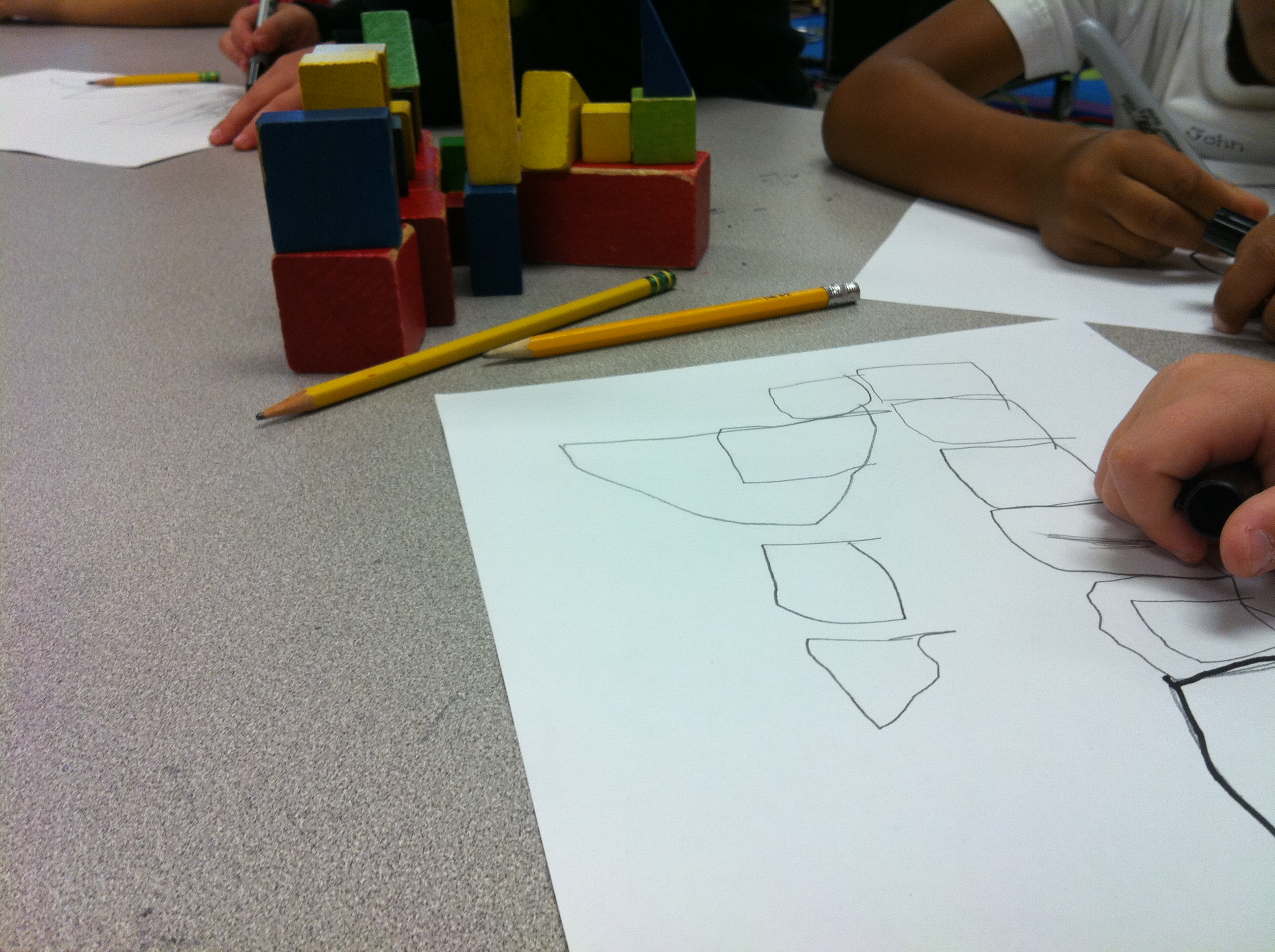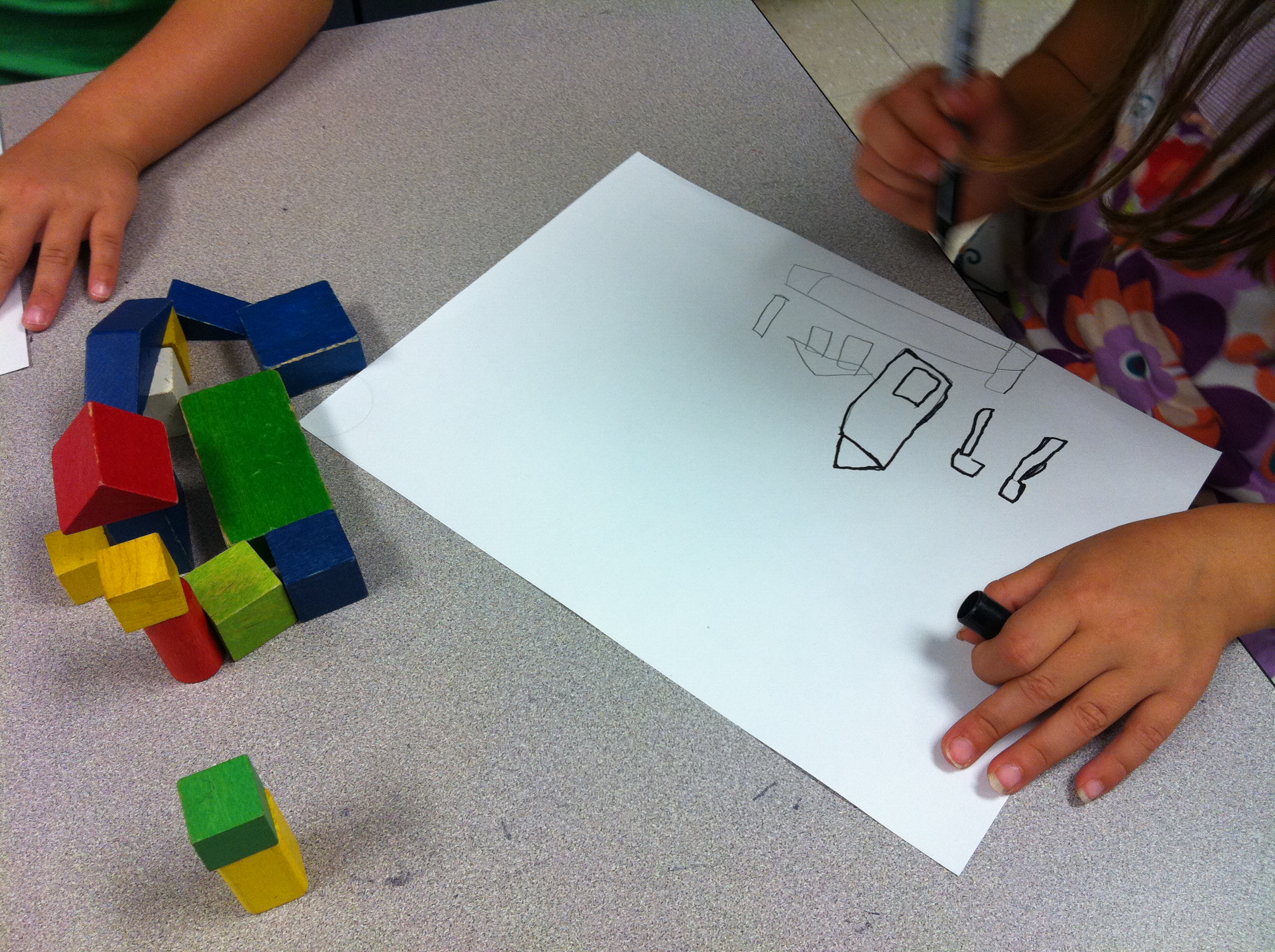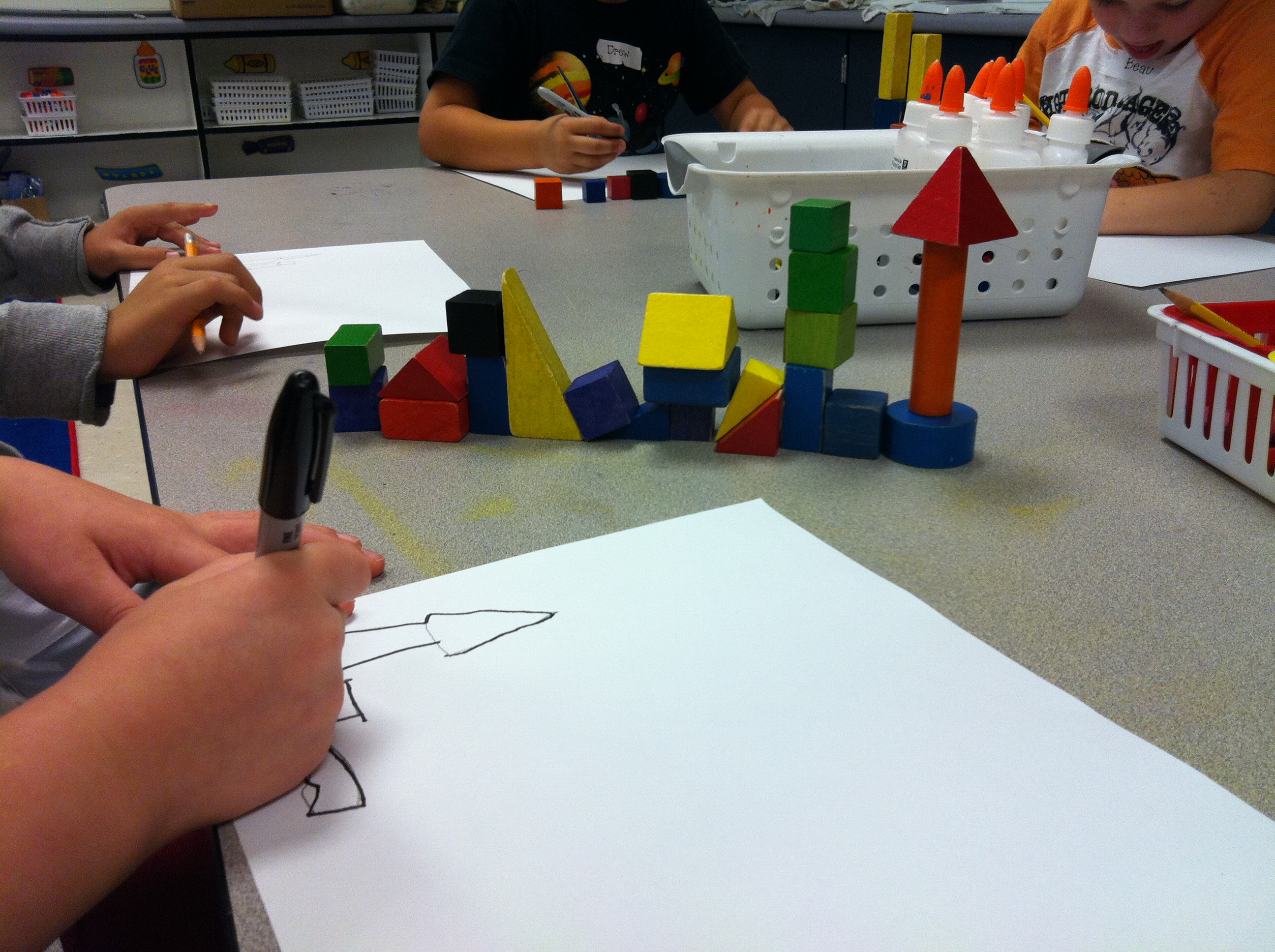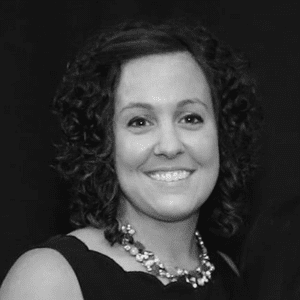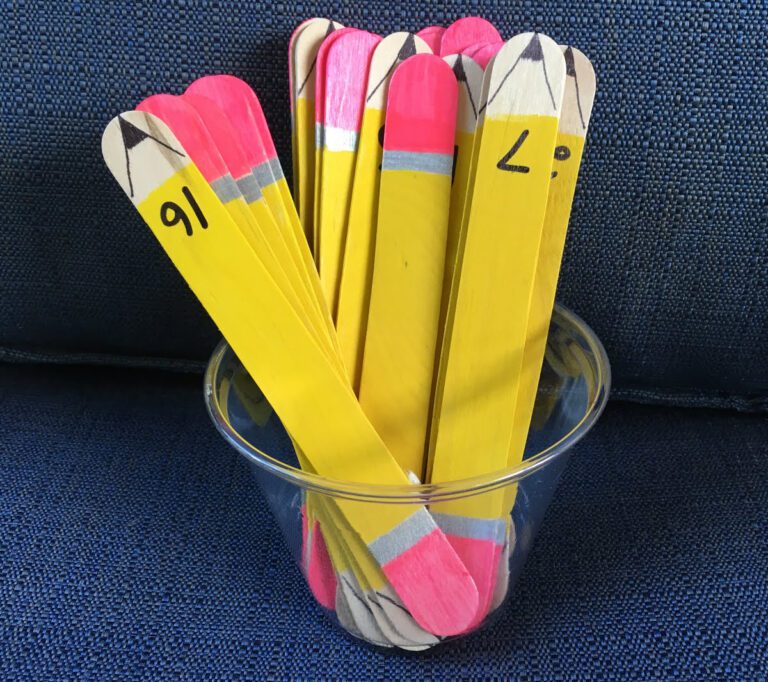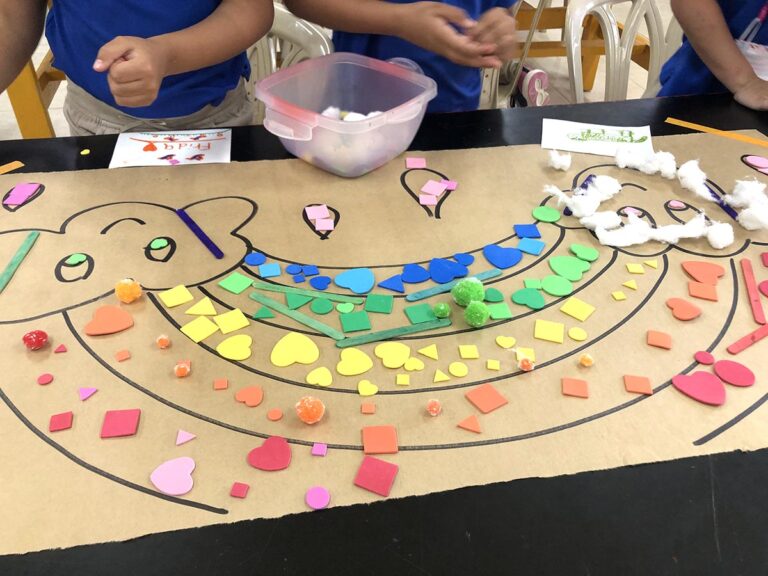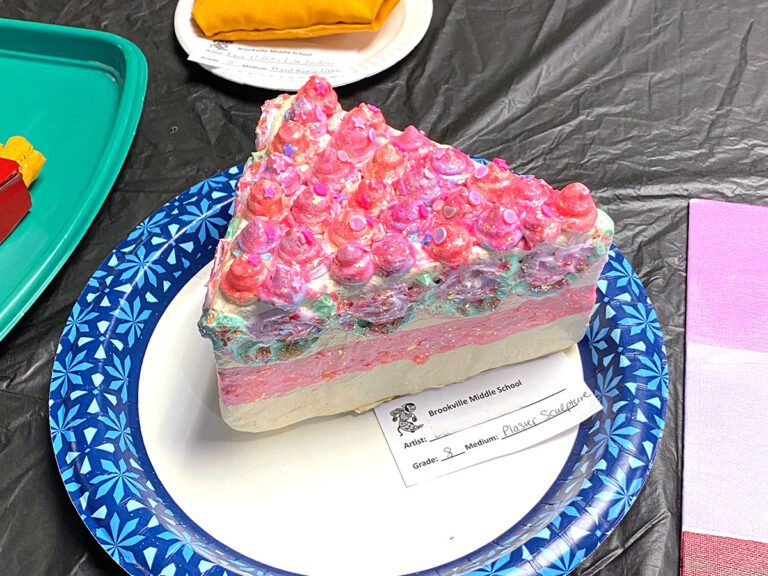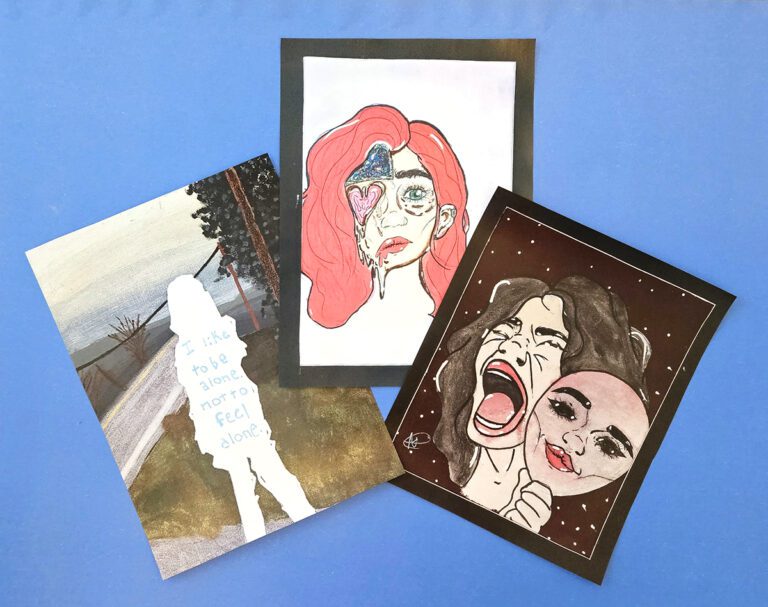I rarely try new lessons with kindergarten. It freaks me out. I like to stick with what I know and what works well because sometimes that is just how I am! Plus, I’ve spent years getting my kindergarten curriculum to where I want it and like it.
But this year, I tried a new lesson that I found while browsing an old Arts & Activities magazine. It was architecture and observational drawing (two of my favorite things) rolled into one lesson!
The Basics
This lesson was super simple.
First, I demonstrated how to look at something constructed out of blocks. I emphasized drawing large.
Then, students worked in teams to build their structures.
Finally, students drew what they built from observation. Later, I had them add creative details using line designs and their imaginations.
This is one of my favorite new lessons. It got my Kindergarten students away from the follow me back-and-forth and into true observational drawing. Although it was challenging for some, I was amazed at the detail students were able to achieve and how excited they were to try their hand at this exercise.
All I had to do was put some faith in the abilities of the students and let them try something more advanced. The products may not have wowed a crowd, but the process was oh so important and great for teaching shape, lines, observational drawing, and architecture. Plus, it only took two, 40-minute class periods.
What are other ideas do you have for observational drawing with lower elementary students?
Magazine articles and podcasts are opinions of professional education contributors and do not necessarily represent the position of the Art of Education University (AOEU) or its academic offerings. Contributors use terms in the way they are most often talked about in the scope of their educational experiences.
